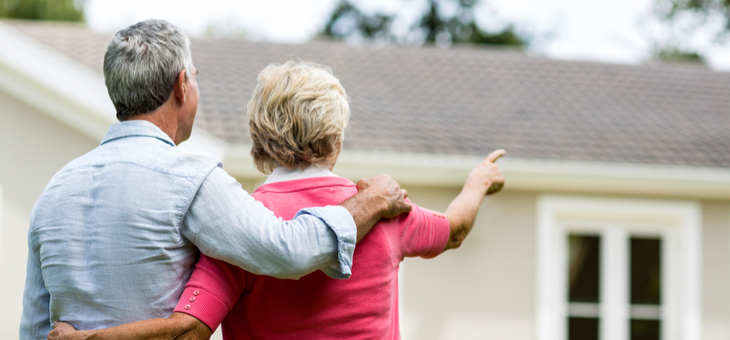Home ownership across Australia is on the decline.
According to 2016 census data from the Australian Bureau of Statistics (ABS), 65.5 per cent of Australian homes are owner-occupied, compared with 67 per cent in 2011.
Renting in retirement is still relatively rare with around 15 per cent of older Australians living as tenants according to a Productivity Commission report on the housing decisions of older Australians in 2015.
The Productivity Commission report also said that most of the people in this cohort were “generally a highly vulnerable and economically disadvantaged group”. Thus, very few people made an active choice to rent in retirement.
There are reasons that so few people choose this option as the Australian Age Pension system excludes the primary residence from the asset test required to access their pension payments. This exclusion of the primary residence from the asset test discourages people from freeing up the equity in their home, as it can prove costly once that extra money is assessed as deemed income or an asset.
However, if you are a self-funded retiree and already ineligible for the Age Pension, or in a situation where you can sell your home without affecting your pension, renting might be more popular than it first seems. Here are some reasons why.
Access the equity locked in your home
This is the first and most obvious reason to sell your home and take up renting. Taking this option can create a much more comfortable retirement and allow you to spread the money into different investments, which can help make sure that you don’t run out of money. The main reason so few retirees want to free up the equity in their home is that they are worried they will have less wealth to pass onto their heirs. However, adult children often support their parents’ decision to tap into home equity to make their retirement more comfortable.
Try before you buy
For retirees looking for a sea change in their later years, or perhaps even a tree change, renting can be the ideal way to try out a new location without going to the hassle and expense of buying. You can also try moving closer to public transport, test out the feel of a smaller property or try out different neighbourhoods or suburbs.
Living closer to children or grandchildren
You may not be able to afford to buy a property close to where your adult children are living, especially if they are living in inner Sydney or inner Melbourne, but renting may be an option.
No home repairs or maintenance
One great thing about being a renter is that when something breaks, you don’t have to fix it yourself – or pay someone else to fix it. In many rental agreements, the landlord is responsible for property maintenance.
The flipside
There are, of course, many negatives to renting in retirement. It will significantly increase your housing costs and consume a large portion of your income. There is also the risk that your landlord could terminate your lease. This uncertainty and the practicalities of moving home later on in life could cause you unnecessary stress.
Would you ever consider selling your home and renting in retirement? What factors would make it an attractive option?
Related articles:
Financial equality eludes women
$900b tapped to save retirement
Real change, not small change

